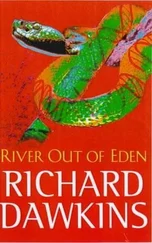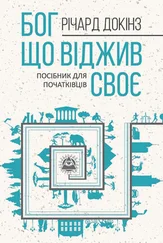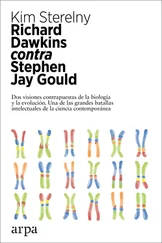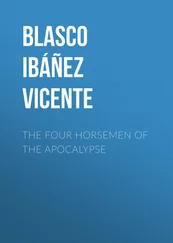Richard Dawkins - The Four Horsemen, episode 1
Здесь есть возможность читать онлайн «Richard Dawkins - The Four Horsemen, episode 1» весь текст электронной книги совершенно бесплатно (целиком полную версию без сокращений). В некоторых случаях можно слушать аудио, скачать через торрент в формате fb2 и присутствует краткое содержание. Жанр: Фантастика и фэнтези, на английском языке. Описание произведения, (предисловие) а так же отзывы посетителей доступны на портале библиотеки ЛибКат.
- Название:The Four Horsemen, episode 1
- Автор:
- Жанр:
- Год:неизвестен
- ISBN:нет данных
- Рейтинг книги:3 / 5. Голосов: 1
-
Избранное:Добавить в избранное
- Отзывы:
-
Ваша оценка:
- 60
- 1
- 2
- 3
- 4
- 5
The Four Horsemen, episode 1: краткое содержание, описание и аннотация
Предлагаем к чтению аннотацию, описание, краткое содержание или предисловие (зависит от того, что написал сам автор книги «The Four Horsemen, episode 1»). Если вы не нашли необходимую информацию о книге — напишите в комментариях, мы постараемся отыскать её.
The Four Horsemen, episode 1 — читать онлайн бесплатно полную книгу (весь текст) целиком
Ниже представлен текст книги, разбитый по страницам. Система сохранения места последней прочитанной страницы, позволяет с удобством читать онлайн бесплатно книгу «The Four Horsemen, episode 1», без необходимости каждый раз заново искать на чём Вы остановились. Поставьте закладку, и сможете в любой момент перейти на страницу, на которой закончили чтение.
Интервал:
Закладка:
[CH] I'm absolutely riveted by what you say. I'd really love an instance in theory or practice, of something, that you think we could know but could forbid ourselves to know. Because that is harder for me to imagine, than a world without faith, I must say.
[SH] Well, you brought up the bell curve - I mean, if there were reliable differences in intelligence between races, or species, or gender …
[CH] Yes, but I don't think any of us here do think that that's the case. I mean, I'm thinking there must be something, you must've thought of something you could believe, but wish you didn't know.
[DD] Oh, I don't think it's hard to dream up things which, if they were true, it might be better for the human race to go on not knowing them.
[CH] But could you concretise it just a little more? I'm completely …
[RD] I mean, the hypothetical is one thing, but Christopher is asking do you actually … have you ever suppressed something that … ?
[DD] No, no, I haven't.
[RD] No, no.
[CH] Can you imagine yourself doing so, by the way? I mean, I can't.
[DD] Oh, I can imagine it, I hope it never comes up.
[SH] Well, take the synthesising of bioweapons. I mean, should Nature publish the code for Smallpox, where anyone within his lab can …
[DD] Yeah, exactly. There's all those sorts of things.
[CH] Oh, well, all right, but that would be a knowledge of which we should remain
innocent. That would be more like a capacity.
[SH] I think, with foresight, certainly you can conceive of a circumstance where someone can seek knowledge, the only conceivable application of which would be unethical, or the dissemination of which would put power in the wrong hands. But actually, you brought up something which I think is crucial here, because it's not so much the spread of seditious truths to Islam or the rest of the world that I think we're guilty of in the eyes of our opponents, it's the not-honouring of facts that are not easily quantified, and easily discussed in science. I mean the classic retort to all of us is 'prove to me that you love your wife', as though this were a knockdown argument against atheism. You can't prove it. Well, if you unpack that a little bit, you can prove it, you can demonstrate it, we know what you mean by love, but, there is this domain of the sacred that is not easily captured by science, and scientific discourse has really ceded it to religious discourse.
[DD] And artistic discourse, which is not religious, necessarily.
[SH] But I would argue it's not even well-captured by art, necessarily, there's something in the same way that love is not really well-captured by art, and compassion is not … well, I mean, you can represent it in art, but it's not reducible to … you don't go into the museum and find compassion in its purest form. And, I think there's something about the way we, as atheists, merely dismiss the bogus claims of religious people that convinces religious people that there's something we're missing, and I think we have to be sensitive to this.
[CH] Absolutely, that's why they bring up "when has secularism ever built anything like Durham Cathedral or a Chartres? or a devotional painting? or the music of …?”
[DD] Bach.
[CH] Well, I guess it would have to be Bach, yes.
[SH] But I think we have answers to that. I think we have answers to that
[CH] Yes, we do.
[SH] You provide a very good answer to that, if there was secular patronage of the arts at that point, then one, we can't know that Michelangelo was actually a believer, because the consequence of professing your unbelief, in that case, was death. But two, if we had a secular organisation to …
[RD] To commission Michelangelo.
[SH] … to commission Michelangelo, you know, we would have all that secular artwork.
[CH] Though do you … I didn't actually say that the corollary held
[SH] Which?
[CH] I think it's true we can't know with devotional painting, and sculpture, and architecture that the patronage didn't have a lot to do with it. But I can't hear myself saying 'if only you had a secular painter, he would have done just as good work.'
[SH] Oh no, no, I think I'm fusing you and Richard there.
[CH] I don't know why, and I'm quite happy to find that I don't know why, I can't quite hear myself saying that.
[RD] What? That Michelangelo, if he'd been commissioned to do the ceiling of a museum of science, wouldn't have produced something just as wonderful?
[CH] In some way, I'm reluctant to affirm that, yes.
[RD] Really? I find it very, very easy to believe that.
[CH] That could be a difference between us, I mean with devotional poetry, where I do … I don't know much about painting or architecture or music, and some devotional architecture, like, say, St Peter's, …
[SH] It couldn't be done.
[CH] I don't like anyway, and knowing that it was built by a special sale of indulgences
doesn't help either!
[SH] Yeah, right.
[CH] With devotional poetry, like say that of, say, John Donne, or George Herbert, I find it very hard to imagine that it's faked, or done for a patron.
[RD] Yes, I think that's fair enough.
[CH] It would be very improbable people would write poetry like that to please anyone.
[SH] Well, could it be done in the spirit of reason?
[CH] Well, I frankly think that's the only explanation.
[RD] But, in any case, what conclusion would you draw? I mean, if Donne's devotional poetry is wonderful, so what? I mean it doesn't show that it represents truth in any sense.
[CH] Not in the least. Well, my favourite devotional poem is Philip Larkin's "Church Going". It's like one of the best poems ever written. It exactly expresses … I wish I had it here, well actually I do have it here. If you like, I can read it - but I wouldn't trust anyone who believed any more, or any less than Larkin does, when he goes to a wayside Gothic church in the English countryside, who felt - I don't say believed - I shouldn't say believed - who felt any more than he does, he's an atheist, or who felt any less, that there's something serious about this. And something written into the human personality, as well as the landscape.
[SH] Let's bring this back to your question.
[DD] I don't see that this is anything other than a special case.
[CH] It goes without saying that this says nothing about the truth of religion.
[DD] I don’t see how this is anything other than a special case. Other special cases of which would be … I can't think of a perfect example … only by being lost at sea for two years in a boat, and then surviving that, that's the only way you could conceivably have written this account, it could not be fiction.
[SH] Or quit smoking!
[DD] And it's glorious, wonderful art, and it can be true, and we just accept that's true, and Donne's poetry, only very extreme circumstances could make it possible. And we can be grateful, perhaps, that those extreme circumstances existed and made this possible.
[SH] In his case?
[DD] Yeah.
[SH] But now you wouldn't recommend being lost at sea to everyone?
[DD] No, no, no.
[CH] No, I wouldn't recommend "Death Be Not Proud" to anyone, either, although it's a wonderful poem, but it's complete gibberish if you look only at the words. It's the most extraordinary gibberish if you look only at the words, but there's an x-factor involved, which I'm quite happy to both assume will persist, and will need to be confronted.
[SH] Right. You raise this issue though, of whether or not we would wish the churches emptied on Sundays. And I think you were uncertain whether you would, and I think I would agree. I would want a different church. I would want a different ritual, motivated by different ideas but I think there's a place for the sacred in our lives, but under some construal it doesn't presuppose any bullshit. But there's a usefulness to seeking profundity as a matter of our attention, and our neglect of this area, I think, as atheists, at times makes even our craziest opponents seem wiser than we are. I mean, take someone like Sayyid Qutb, who's as crazy as it gets, mean Osama bin Laden's favorite philosopher. He came out to Greeley, Colorado, I think it was, around 1950, and spent a year in America, and noticed that all his American hosts were spending all their time gossiping about movie stars and trimming their hedges and coveting each other's automobiles and he came to believe that that America, or the West, was so trivial in its preoccupations and so materialistic that it had to be destroyed. Now this shouldn't be construed as giving any credence to his world view but he has a point. There is something trivial and horrible about the day-to-day fascinations of most of us, and most people, most of the time. There’s a difference between really using your attention wisely in a meaningful way, and our perpetual distraction. And traditionally, only religion has tried enunciate and clarify that difference. And I think that's a lapse in our …
Читать дальшеИнтервал:
Закладка:
Похожие книги на «The Four Horsemen, episode 1»
Представляем Вашему вниманию похожие книги на «The Four Horsemen, episode 1» списком для выбора. Мы отобрали схожую по названию и смыслу литературу в надежде предоставить читателям больше вариантов отыскать новые, интересные, ещё непрочитанные произведения.
Обсуждение, отзывы о книге «The Four Horsemen, episode 1» и просто собственные мнения читателей. Оставьте ваши комментарии, напишите, что Вы думаете о произведении, его смысле или главных героях. Укажите что конкретно понравилось, а что нет, и почему Вы так считаете.












